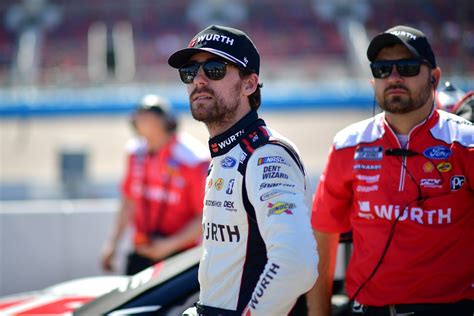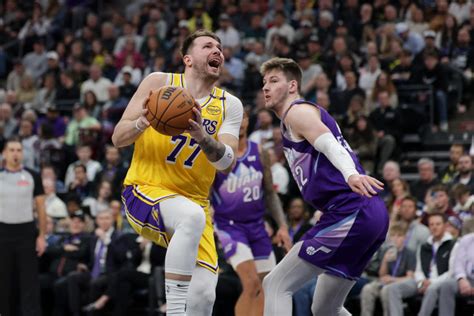
Charlie Woods, son of golf legend Tiger Woods, captured attention at a recent junior golf event, not just for his play but for a scorecard reflecting a rollercoaster of highs and lows that his father playfully dubbed a “psycho scorecard.” The young Woods showcased flashes of brilliance interspersed with costly errors, highlighting the unpredictable nature of junior golf and drawing comparisons to his father’s own early experiences.
Charlie Woods’ performance at the junior event provided a glimpse into his developing game and the pressures of carrying a famous name. While the scorecard may have been erratic, it offered valuable learning experiences as he navigates the competitive world of golf. Woods finished the day with a four-over-par 76.
The young Woods’ round was marked by several impressive birdies and pars, demonstrating his potential and skill. However, the scorecard also included a series of bogeys and other higher scores, resulting in the overall “psycho” label, emphasizing the inconsistencies that are common in junior golf as players develop their skills and mental fortitude.
Key Moments and Analysis
The round began with promise, with Charlie demonstrating a solid swing and confident demeanor. He navigated the early holes with composure, making several pars and showcasing his ability to manage the course. However, as the round progressed, challenges emerged. One notable setback came on a par-3, where a misjudged shot led to a double bogey. Despite these setbacks, Charlie remained resilient, bouncing back with birdies on subsequent holes, illustrating his mental toughness and ability to recover from mistakes.
Tiger Woods, who was present to support his son, offered words of encouragement and guidance throughout the round. He emphasized the importance of learning from each shot, regardless of the outcome, and maintaining a positive attitude in the face of adversity. “I think that’s the name of the game, is to keep fighting, even when you don’t have your best stuff,” Tiger Woods noted, reflecting on the broader lessons golf teaches about perseverance and resilience.
Impact and Perspective
Charlie’s performance has garnered significant attention from the golf community, with many observers noting the similarities between his game and his father’s. While the “psycho scorecard” may have raised eyebrows, it also underscored the challenges and triumphs inherent in junior golf. Experts emphasize that such fluctuations are a normal part of the learning process and that consistency will come with experience and continued practice.
The Woods family has always approached Charlie’s golf journey with a focus on development and enjoyment, rather than solely on results. Tiger Woods has been instrumental in providing guidance and mentorship, drawing upon his own experiences to help Charlie navigate the pressures of competition and the expectations that come with his family name.
The junior golf circuit is filled with young talents striving to improve their skills and compete at higher levels. Charlie Woods is among these aspiring golfers, gaining valuable experience and learning to manage the challenges of the game. His “psycho scorecard” serves as a reminder of the ups and downs that are part of the journey, and the importance of resilience and perseverance in the pursuit of excellence.
Frequently Asked Questions (FAQs)
1. What is a “psycho scorecard” in the context of golf?
A “psycho scorecard” refers to a round of golf characterized by significant fluctuations in performance, featuring a mix of birdies and pars alongside bogeys or worse. It indicates inconsistency and a lack of stability throughout the round. In Charlie Woods’ case, his father, Tiger Woods, used the term to describe a round where Charlie showcased both brilliance and costly errors.
2. How does Charlie Woods’ game compare to his father, Tiger Woods, at a similar age?
Comparisons between Charlie Woods and his father, Tiger Woods, at a similar age are inevitable, but it’s essential to consider that each golfer’s journey is unique. While Charlie has demonstrated flashes of the same talent and determination that characterized Tiger’s early career, he is still developing his own style and approach to the game. Observers have noted similarities in their swing mechanics and competitive spirit, but Charlie is also forging his own path and establishing his identity as a golfer.
3. What role does Tiger Woods play in Charlie Woods’ golf development?
Tiger Woods plays a significant role in Charlie Woods’ golf development, serving as both a mentor and coach. He provides guidance and support, drawing upon his own experiences to help Charlie navigate the challenges of competitive golf. Tiger emphasizes the importance of learning from each shot, maintaining a positive attitude, and focusing on continuous improvement. His presence and advice are invaluable resources for Charlie as he progresses in his golf journey.
4. What are the key challenges that junior golfers face in competitive tournaments?
Junior golfers face numerous challenges in competitive tournaments, including managing pressure, maintaining consistency, and developing mental fortitude. The pressure to perform well can be overwhelming, leading to anxiety and mistakes. Consistency is also a significant challenge, as young golfers are still developing their skills and may struggle to maintain a high level of play throughout an entire round. Mental fortitude is crucial for overcoming setbacks and staying focused on the task at hand. Additionally, junior golfers must balance their golf pursuits with academic responsibilities and other extracurricular activities.
5. What can Charlie Woods learn from his “psycho scorecard” experience?
Charlie Woods can learn several valuable lessons from his “psycho scorecard” experience. It provides an opportunity to identify areas for improvement in his game, such as managing course strategy and minimizing mistakes. It also highlights the importance of resilience and mental toughness in overcoming adversity. By analyzing the factors that contributed to the fluctuations in his performance, Charlie can develop strategies for maintaining consistency and staying focused under pressure. Ultimately, the “psycho scorecard” serves as a learning experience that can contribute to his growth and development as a golfer.
Expanded Analysis and Context
Charlie Woods’ recent round serves as a microcosm of the challenges and opportunities inherent in junior golf. The term “psycho scorecard,” while lighthearted, underscores the volatile nature of the game, particularly for young players who are still honing their skills and developing their mental game. A closer examination of Charlie’s performance reveals several key aspects that are relevant to understanding his development and the broader context of junior golf.
Technical Aspects of Charlie’s Game:
Observers have noted that Charlie Woods possesses a swing that mirrors his father’s in many ways, exhibiting a similar power and fluidity. His ability to generate clubhead speed and maintain a consistent swing plane is impressive for his age. However, like many junior golfers, Charlie is still working on refining his technique and improving his accuracy. His “psycho scorecard” suggests that he may be prone to occasional mishits or lapses in concentration, leading to costly errors.
One area for potential improvement is his short game. While he has demonstrated flashes of brilliance around the greens, consistency in chipping and putting is crucial for lowering his scores. Developing a reliable putting stroke and mastering different short-game techniques will help him save strokes and minimize the impact of errant shots.
Mental Game and Course Management:
The mental game is a critical component of golf, and it becomes even more important as players progress to higher levels of competition. Charlie Woods’ “psycho scorecard” suggests that he may still be developing his mental fortitude and course management skills. The ability to stay calm and focused under pressure, make smart decisions on the course, and bounce back from setbacks are essential for success in golf.
Tiger Woods has undoubtedly instilled in Charlie the importance of mental toughness and resilience. However, developing these qualities takes time and experience. Charlie can benefit from working with a sports psychologist or mental coach to learn strategies for managing his emotions, staying focused on the present moment, and visualizing success.
Course management is another area where Charlie can improve. This involves making smart decisions about which clubs to use, where to aim, and how to approach each shot. A well-thought-out course management strategy can help him avoid unnecessary risks and minimize the potential for big numbers.
The Pressure of a Famous Name:
Being the son of Tiger Woods comes with unique pressures and expectations. Charlie is constantly under scrutiny, and his performances are inevitably compared to his father’s legendary achievements. This can be a heavy burden for a young golfer to bear, and it requires a strong sense of self-belief and resilience to navigate the challenges.
Tiger Woods has been careful to shield Charlie from excessive media attention and to create a supportive environment where he can develop at his own pace. He has emphasized the importance of enjoying the game and focusing on continuous improvement, rather than solely on results. This approach is crucial for helping Charlie maintain a healthy perspective and avoid burnout.
The Role of Junior Golf Tournaments:
Junior golf tournaments play a vital role in the development of young golfers. They provide a platform for players to test their skills, compete against their peers, and gain valuable experience in a competitive environment. These tournaments also offer opportunities for players to learn from their mistakes, identify areas for improvement, and develop their mental toughness.
Charlie Woods’ participation in junior golf tournaments is an important step in his development. By competing against other talented young golfers, he is pushing himself to improve and gaining valuable experience that will serve him well as he progresses in the game.
The Importance of Long-Term Development:
It is essential to view Charlie Woods’ “psycho scorecard” in the context of his long-term development as a golfer. He is still young and has plenty of time to hone his skills and develop his potential. The fluctuations in his performance are a normal part of the learning process, and they should not be seen as a reflection of his ultimate ability.
Tiger Woods has always emphasized the importance of patience and perseverance in golf. He understands that success requires dedication, hard work, and a long-term commitment to improvement. By focusing on the process and celebrating small victories along the way, Charlie can stay motivated and continue to develop his game.
Comparative Analysis with Other Junior Golfers:
To provide a more comprehensive understanding of Charlie Woods’ performance, it is helpful to compare his game to that of other junior golfers in his age group. While specific data on Charlie’s rankings and statistics may be limited, general trends in junior golf can offer valuable insights.
Typically, junior golfers in Charlie’s age group (around 15 years old) are working on refining their swing mechanics, improving their short game, and developing their mental toughness. They are also learning to manage the pressures of competition and to balance their golf pursuits with academic responsibilities.
The level of competition in junior golf can vary widely, depending on the region and the specific tournaments. Some junior golfers are already playing at a very high level, while others are still developing their skills. Charlie Woods’ performance suggests that he is competitive within his age group, but he still has room for improvement.
The Broader Impact on Golf:
Charlie Woods’ involvement in golf has generated significant interest in the sport, particularly among younger audiences. His presence at tournaments and his appearances alongside his father have helped to inspire a new generation of golfers.
The Woods family’s influence on golf extends beyond the professional level. They have also been involved in various initiatives to promote the game and make it more accessible to young people from diverse backgrounds. Their efforts have helped to create opportunities for aspiring golfers and to foster a more inclusive and welcoming environment in the sport.
The Future of Charlie Woods’ Golf Career:
The future of Charlie Woods’ golf career remains uncertain, but he undoubtedly has the potential to achieve great things. With continued hard work, dedication, and guidance from his father, he could become a successful professional golfer.
However, it is important to remember that success in golf is not guaranteed. Even the most talented players face challenges and setbacks along the way. Charlie will need to overcome obstacles, persevere through difficult times, and maintain a positive attitude in order to reach his full potential.
Whether or not he ultimately becomes a professional golfer, Charlie Woods’ involvement in the sport has already had a positive impact. He has inspired young people to take up the game, and he has demonstrated the importance of hard work, dedication, and sportsmanship.
The Psychology of a “Psycho Scorecard”:
Delving deeper into the psychology behind a “psycho scorecard” can provide additional context and understanding. Such a scorecard isn’t merely a random occurrence; it often reflects underlying mental and emotional factors that influence a golfer’s performance.
Fear of Failure: One of the primary drivers of inconsistency in golf, particularly among junior players, is the fear of failure. This fear can manifest as anxiety, tension, and a tendency to overthink shots. When a golfer becomes preoccupied with avoiding mistakes, it can lead to a self-fulfilling prophecy, where the fear of failure actually increases the likelihood of errors.
Lack of Confidence: Confidence is essential for success in golf, and a lack of confidence can contribute to a “psycho scorecard.” When a golfer doubts their abilities, they may hesitate on shots, second-guess their decisions, and lack the conviction to execute their plan. This can lead to tentative swings and poor results.
Emotional Reactivity: Golf is an emotional game, and it’s easy to get caught up in the highs and lows of a round. Emotional reactivity, or the tendency to overreact to good or bad shots, can disrupt a golfer’s focus and lead to inconsistency. A golfer who gets too excited after a birdie may become complacent on the next hole, while a golfer who gets frustrated after a bogey may lose their composure and make further mistakes.
Poor Course Management: As mentioned earlier, course management plays a crucial role in consistency. Poor course management decisions, such as taking unnecessary risks or failing to account for hazards, can lead to big numbers and contribute to a “psycho scorecard.”
Lack of a Pre-Shot Routine: A consistent pre-shot routine can help golfers stay focused and maintain their composure. A pre-shot routine is a series of steps that a golfer takes before each shot to prepare mentally and physically. A well-defined pre-shot routine can help golfers block out distractions, stay in the present moment, and execute their shots with confidence.
Strategies for Overcoming Inconsistency:
There are several strategies that golfers can use to overcome inconsistency and improve their mental game. These include:
Developing a Growth Mindset: A growth mindset is the belief that abilities can be developed through hard work and dedication. Golfers with a growth mindset are more likely to embrace challenges, learn from their mistakes, and persevere through difficult times.
Practicing Mindfulness: Mindfulness is the practice of paying attention to the present moment without judgment. Mindfulness techniques, such as meditation and deep breathing, can help golfers stay calm and focused under pressure.
Setting Realistic Goals: Setting realistic goals is essential for maintaining motivation and building confidence. Golfers should set goals that are challenging but achievable, and they should focus on the process of improvement rather than solely on the outcome.
Working with a Sports Psychologist: A sports psychologist can help golfers develop mental strategies for managing pressure, building confidence, and overcoming inconsistency. Sports psychologists can also provide guidance on course management and pre-shot routines.
Analyzing Past Performances: Reviewing past performances can help golfers identify patterns and areas for improvement. By analyzing their scorecards and reflecting on their decision-making, golfers can gain valuable insights into their strengths and weaknesses.
The Legacy of the Woods Family:
The Woods family has left an indelible mark on the world of golf. Tiger Woods’ unparalleled success has inspired millions of people to take up the game, and his commitment to promoting diversity and inclusion has helped to make golf more accessible to people from all backgrounds.
Charlie Woods’ involvement in golf is a continuation of this legacy. He has the potential to follow in his father’s footsteps and achieve great things in the sport. However, regardless of his ultimate accomplishments, Charlie’s passion for golf and his commitment to sportsmanship are already making a positive impact.
Conclusion:
Charlie Woods’ “psycho scorecard” is a reminder that golf is a challenging and unpredictable game. It underscores the importance of resilience, mental toughness, and a long-term commitment to improvement. As Charlie continues to develop his game, he will undoubtedly face further challenges and setbacks. However, with the guidance of his father and the support of the golf community, he has the potential to achieve great things. His journey is a testament to the enduring appeal of golf and the power of perseverance in the face of adversity. The scrutiny and comparisons will continue, but his focus on improvement and enjoyment will ultimately define his path in the world of golf.









